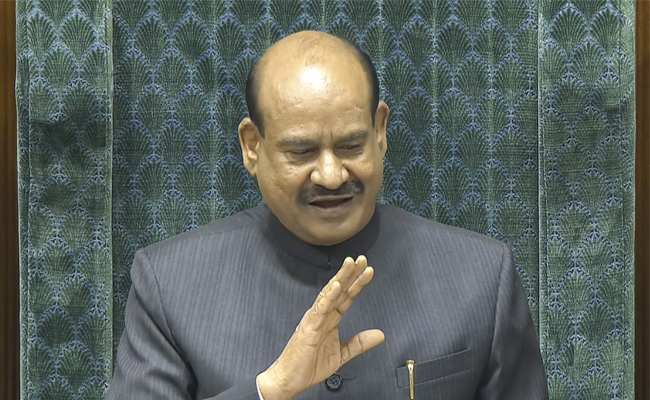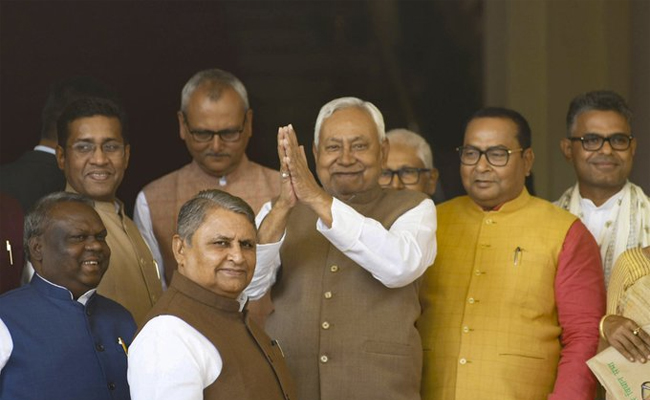New Delhi, Sep 5: Taranjeet Singh, who was elevated as Twitter's Country Director for India in May 2017, has decided to move on.
In a series of tweets late on Tuesday, Singh announced his resignation, saying that Balaji Krish, Twitter's Global Head of Revenue Strategy and Operations, will become the interim country head.
"Hello everyone, after four amazing years, I have decided to move on from @TwitterIndia -- from being one of the first @Twitter employees in #India, to building up the sales team from the ground up, to leading our expansion and investments as the India Country Director," Singh said.
He was earlier leading the charge for sales and marketing support for Twitter's advertisers in India.
"India is one of our largest and fastest growing markets worldwide today. We have hired many Tweeps at @TwitterIndia, diversified our client base across the country and continue to be the pulse of Indian society," Singh said.
Before joining Twitter, Singh was sales director, South Asia for BBC Advertising. Prior to the BBC, he held various positions at Outlook Publishing.
"I'll spend the next month transitioning my country duties to colleague and friend @BalajiKrish, our global head of revenue strategy and operations.
"He's coming from the US to be interim country lead until my replacement is hired," Singh informed.
During his career, he saw the launch of "Twitter Lite", a more accessible, faster and affordable way to get real-time information.
When it comes to Twitter's alignment with the government, the micro-blogging platform is working with the government on real-time citizen engagement through "Twitter Seva".
"As an India-first innovation, 'Twitter Seva' is currently being used by the Ministry of Commerce (@DIPPGOI), the Ministry of Railways (@RailMinIndia) and the Department of Telecommunications (@Dot_India) under the Ministry of Communication," Singh had said in an IANS interview.
Twitter also explored new revenue streams and ways of innovation in India during Singh's career.
"The launch of Twitter Data' services in APAC with Discovery Networks Asia Pacific as the first client in the region is one such step and India is one of the focus markets for this," Singh said.
Let the Truth be known. If you read VB and like VB, please be a VB Supporter and Help us deliver the Truth to one and all.
Guwahati (PTI): Three Congress MLAs – Kamalakhya De Purakayastha, Sashikanta Das and Basanta Das – on Thursday joined the ruling BJP in Assam, along with two others, ahead of the assembly polls.
All of them were inducted into the party by state BJP president Dilip Saikia in the presence of Union minister Pabitra Margherita at a function here.
The development comes close on the heels of former Assam Congress president Bhupen Borah joining the saffron party.
ALSO READ: Curbs on movement, assembly remain in force in Kashmir after protests against Khamenei's killing
Elections to the 126-member Assam assembly are likely to be held in April.
Purakayastha represents Karimganj (North), while Sashikanta and Basanta are sitting MLAs from the Raha and Mangaldoi (SC) constituencies, respectively.
The two others who joined the BJP are former Congress joint secretary Parsha Bob Kalita and former Trinamool Congress general secretary Kangkan Nath.
The three MLAs, reported to be close to Chief Minister Himanta Biswa Sarma, had openly supported the BJP for the past few years, with Sasikanta Das announcing his support to the ruling party's policies in 2021.
The Congress had suffered a jolt, with Borah joining the BJP on February 22, while two other MLAs Abdul Rashid Mondal and Sherman Ali Ahmed switching over to the Raijor Dal last month.
Both Mondal and Ahmed are three-time legislators from Goalpara (West) and Baghbar, respectively.





